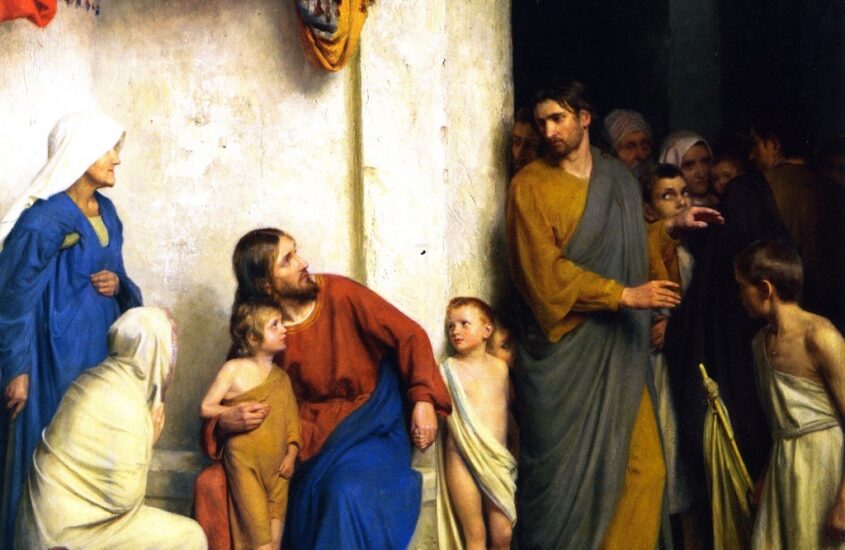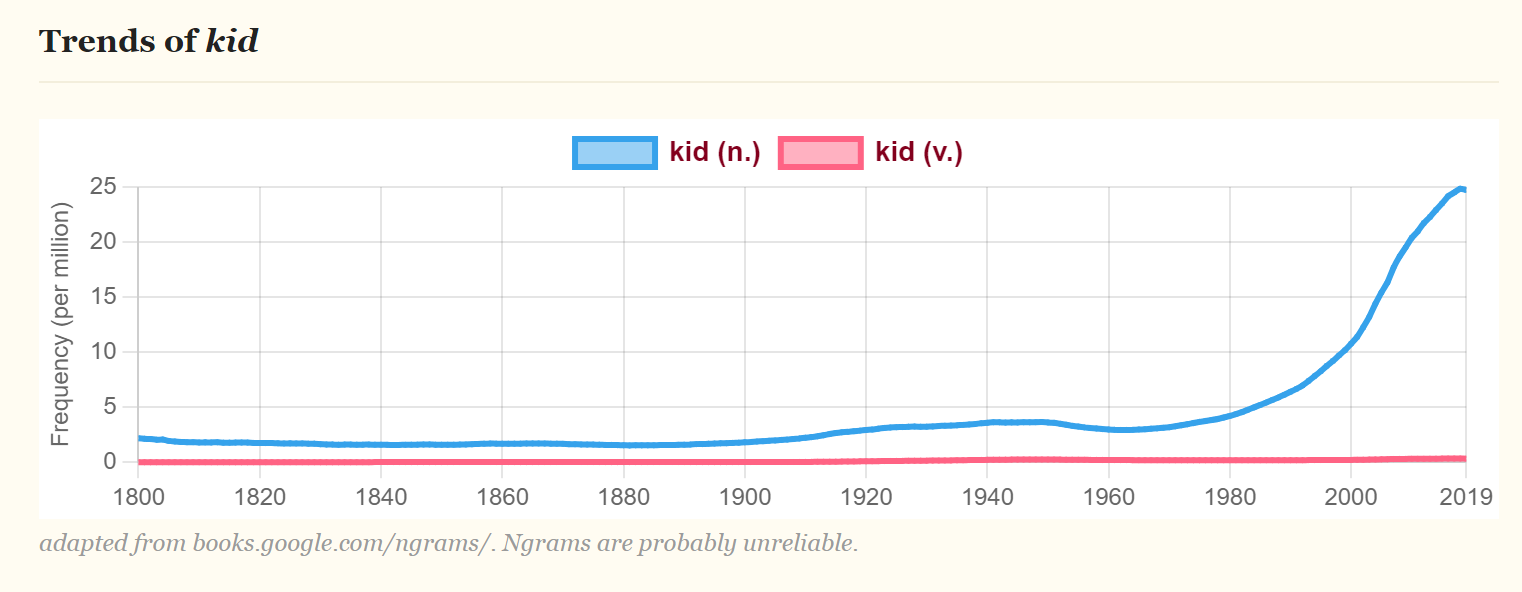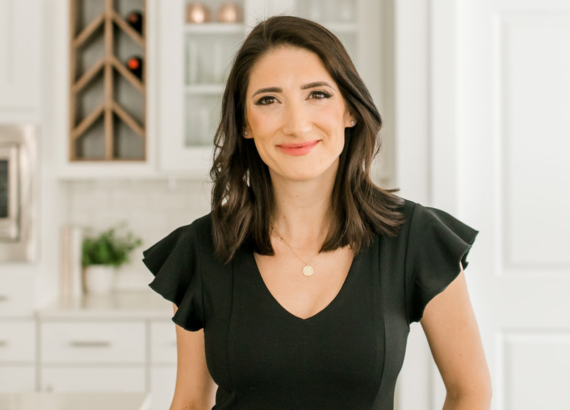I Have Children, Not “Kids”: Why Language is Important
Ani Slattery | PC: Painting by Carl Bloch
PC: Painting by Carl BlochThe language we choose to use is important. A “kid” is a baby goat; an animal. A child is a human being made in the image and likeness of God. This type of language is a small way that our children are being dehumanized by the modern culture, which no longer values children, motherhood or the family unit. From the origin of the word, “kid” has always meant a young goat, then as early as the 1800s, it started being used as a slang term to refer to a child in a very derogatory way. This pattern continued through the ‘90s and ‘00s when I was growing up, becoming much more popular by then.
Today, the word is used so commonly, even in formal settings. It is used also by the advertisers trying to sell you diapers, clothes, toys, etc. for your children. The word “child” is becoming so rare that one almost feels out of place using it in everyday talk. Just try using the word next time you talk about your children with your spouse or friend and tell me if it feels natural.
This is a chart taken from Etymology Online showing the frequency of usage of the word “kid”. I somehow doubt that millions of people are suddenly talking much more about young goats in the modern day.

Does Language Change Over Time?
Now you may argue that language changes over time and words change in meaning, as does the culture. But if the culture is changing not to value children, do we really want to use the terms it gives us to refer to our children? I would argue that in this small way we ought to resist this unwanted shift in the culture in order to preserve the dignity of our children.
Of course I am not saying that if you use the term “kid” you think your child is an animal, or you love him less. We naturally use the language we are surrounded with without thinking about it, until we consciously decide to do otherwise. I am inviting you to consider this. Whether you change or not, I will never know.
I am sure you can think of some other ways language is popularizing disorder (and I would love to hear of your own examples). For instance, the use of the plural pronoun “they” to refer to one person in order to speak in gender-neutral terms. I will not get into the political agenda and all the disorders associated with this. I will simply focus on the language, with the understanding, as I mentioned earlier, that language is one way that these evils and disorders become normalized. It is also the way in which we can best fight against it.
On even an elementary level, it is obvious that using “they” to refer to one person is grammatically incorrect, but it has become so popular that we use it without even thinking about it. There is one common scenario I would like to dive into, since it again involves our children (and this is a magazine for mothers after all).
How Do You Refer to a Child Inside the Womb?
Before you know the baby’s gender (which in the case of my husband and me is the entire pregnancy, since we wait until birth to find out), if you do not want to use the modern, grammatically incorrect and politically charged “they”, you have a few options:
- You can use “it”, but in English “it” is not a word we use to refer to humans. Though now we are being told children who are still in the womb are not human so there are many people using this term, specifically to deny the humanity of the unborn child. However, for those of us who understand when a life begins and what a child is, this is not a good option.
- You can use “he/she” or “he or she”. This would be technically accurate, but I personally do not like how it sounds. It is longer than necessary, and it is a novelty. My husband and I are quite traditional – and he is a writer – so we prefer to use traditional language.
- That leaves the original, traditional, proper term to use in this scenario.
Please excuse me for turning this into a grammar lesson, but I was surprised to find out that this is not common knowledge anymore (at least according to some of the reactions on my Instagram post on this topic). Also, I obtained an otherwise useless bachelor’s degree in Linguistics and Language study, and I am glad for an opportunity to use it!
Etymology
If the gender is not known, the English language has a proper way of referring to a person.
In languages like French and Spanish, this is a little clearer so let me start here. In French, the pronoun “il” means “he” or “it”, and it has two uses: when referring to a man, or when the gender is unknown. In fact, the plural “-ils”, is used for a group of people that has at least one man (even if the 99 others are women). This is simply grammatical. The word has two meanings: a group of men; or a group of men and women together. Spanish is similar with its “-el” and “-ellos”, and so is English with “he”. The pronoun “he” has two meanings: it means a man; or a person whose gender is not yet known. It is similar to using the term “man” or “mankind” to refer to people in general (though I would not be surprised if there is a push to change that term as well). It is important to look at this linguistically and objectively. It is simply the structure of the English language.
So my husband and I use “he” to refer to our baby until we meet him outside the womb. Our midwives often respond with “Oh, you think it will be a boy?!” until we briefly explain, and then they usually call him “baby” or “the baby” which is just fine with me! As I said previously, you can choose to use whichever term you would like, and I will never know. My only goal here is to encourage some reflection on this topic.
How do you feel about the way modern society refers to our children? Comment below and let us know!
P.S. I did not have an opportunity in this article to mention terms like “dog-mom” which is a term that degrades and disrespects motherhood, while implying animals are equal to men (which they are not). This is a rather obvious one and there is not much else to say about it so I am leaving it here as an afterthought.






